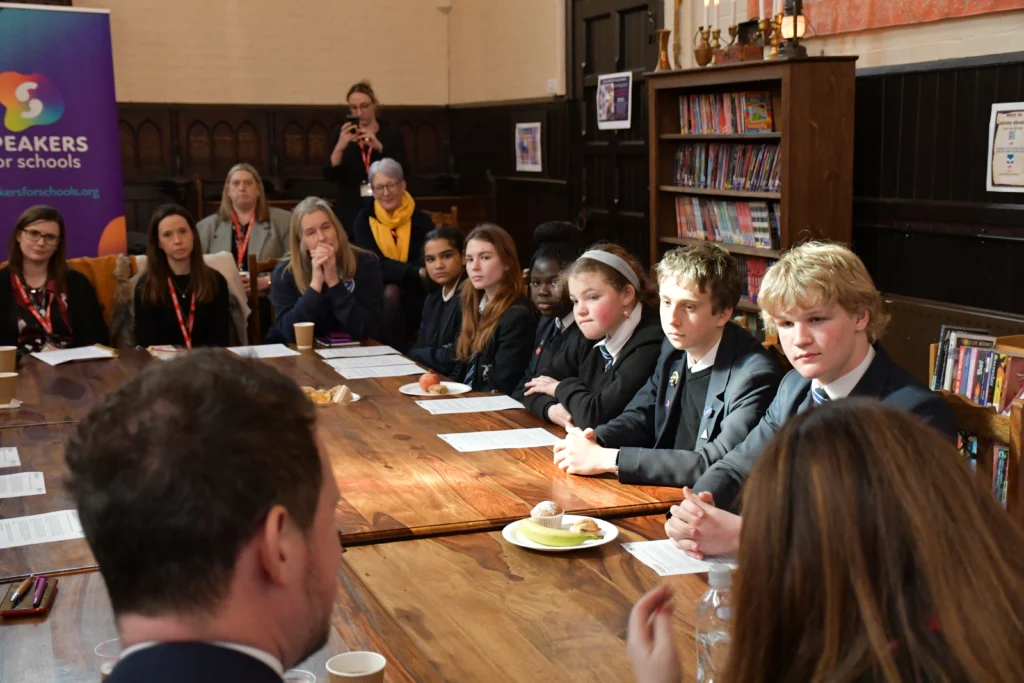Empowering Youth for Future Careers: Insights from Portsmouth Roundtable on Education, Skills, and Social Mobility

Last week, we held an inspiring roundtable in Portsmouth to rethink the intersectionality of education, skills, and social mobility. We invited a diverse assembly of businesses, educators, policymakers, and, most importantly, young voices to discuss the barriers young people face to succeed, irrespective of their social class or place of birth.
The event’s opening remarks by Stephen Morgan MP set a compelling tone, emphasising that “young people, no matter where they’re from, should get the opportunity to thrive,” encapsulating the day’s ethos.
Young people in attendance advocated for embedding career-related content across all subjects, and year groups ignited discussions, highlighting the need for an education system that integrates with the realities of the working world. Their point was that the current system while preparing students academically, needs to better equip them with a clearer understanding of their future pathways.
Student voices
A poignant moment came during a discussion with young people from Priory School. They candidly shared their experiences, highlighting a gap many adults overlook: despite receiving career advice, they remain unsure of their future paths. They proposed a solution that resonated with everyone—linking subjects like maths directly to careers and integrating applied learning into the curriculum.
They argued that this would make learning more relevant and aid in retention and understanding of the material. This perspective highlighted that if the DfE is to deliver on the Prime Minister’s wish for young people to learn maths till 18, there has to be recognition of students’ desire for a curriculum that gives them a clear sightline to the potential use of maths in the workplace.
Finding solutions
The event also tackled the challenges of facilitating quality independent career advice and work experience, from the financial constraints schools face in offering equitable access, an inspection and accountability regime focusing on GCSE league tables, and the practical difficulties employers face in delivering meaningful placements.

Solutions proposed included ring-fenced funding for career education, reforming the apprenticeship levy, and introducing standardised resources and templates to simplify the creation and delivery of work placements.
The call for more accessible and friendly communication from employers to young people was clear. The consensus was that building trust between employers and the younger generation is crucial for bridging the gap between education and the workforce. The attendees expressed a collective desire for industry voices to feed into the education system to broaden students’ horizons about the myriad opportunities awaiting them and the transferable skills required.
Understanding the landscape
The practicalities and variety of work placements available to students were another significant issue raised by attendees. Attendees highlighted the evolving landscape of work experience, emphasising the importance of in-person and digital work experience.
It was recommended that stakeholders take a flexible approach; as one attendee remarked, a T-Level digital business services course required in-person work placements when most digital businesses are remote, showing the mismatch between industry and education policy.
Accessing online and in-person work experience helps schools break down geographical and logistical barriers and opens up new avenues for engagement with companies that provide Year 10 work experience, among others.
As the event drew to a close, Stephen Morgan encapsulated the day’s discussions with a commitment that struck a chord with all present. Acknowledging the highlighted issues, including patchy practices and a prevailing lack of trust, he vowed to work tirelessly with any future government to address these challenges head-on, aiming to improve education and career outcomes for young people.